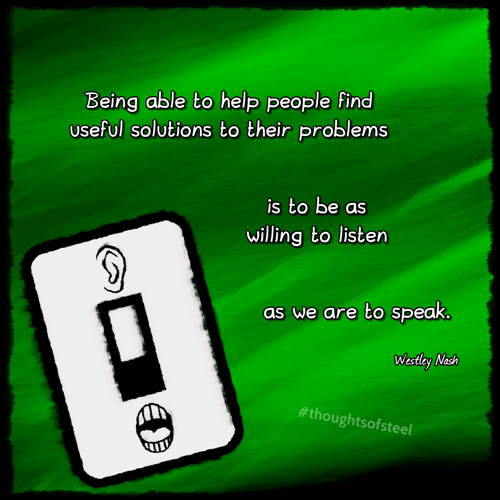%20stemit.png)
It seems as though politicians and organisations do like to hide behind their statistics whenever they are challenged on their policies and procedures. The second someone raises a concern or issue, out come all the reports, charts and spreadsheets, paraded through the media and online like a number crunchers convention. Because they all seem to believe that the statistics somehow absolve them of all sin in the eyes of the people. But I have personally come to observe something about statistics, that ultimately the people do not give a damn about them! This is because the statistics primarily represent society as a whole, they rarely ever represent individuals directly and seeing as we are all individuals with our own individual perceptions, we can only really understand what we are observing in our immediate proximity. For example, while the statistics may show that crime “nationwide” has fallen, that’s little consolation to someone who has just had their home burgled. The statistics may also reveal that “nationwide” the number of bank loans being approved for business has increased, but again that is small reassurance to someone whose company was forced into bankruptcy because they were refused finance.

I guess what I’m saying is that as long as the data was collected and processed correctly, then we cannot technically deny the statistics. But at the same time if these figures do not reflect the perceptions of the people and how it relates to their individual lives then they are unlikely to be seen as a sufficient answer to their queries and concerns. Say that the person who’s home was burgled had knowledge of other homes along their street being broken into in recent months, but when they raise this issue to their local politician, this official just sits there unmoved and says “But overall, the national figures show that crime has actually fallen.” Of course while this may be technically true, it just means that a higher number of streets across the country as a whole have seen a reduction in their crime levels, but it doesn’t change the fact that for these particular people on this particular street, crime is still noticeably high from their perception. During my employment as a Production Support Technician I was tasked with the duty of gathering statistics on quality and process so that the business could make improvements to their operating procedures. This is where I discovered how statistics are better served, that they are a tool for charting your progress and showing whether you are on the right track or not. We should be using them as an indicator as to where we need to improve; not as an excuse to avoid dealing with a problem. But sadly I do think that many Politicians and organisations aim to use national statistics precisely for that purpose, as a means to sidestep or deflect the issue. It’s a bit like when someone asks you to do a job, and you point out past jobs and projects you’ve already completed rather than look into what more needs doing.

Take modern businesses: they use statistics all the time to monitor their incomings and outgoings in order to keep the company ticking over efficiently. Many successful industries know that it’s always good to communicate with their customers to gain a better idea of how they are performing. This is because they know that each person experiences things slightly differently and so by using tools such as surveys, feedback forms and helplines they are able to gain a clearer insight into these varied experiences and then shape their products and services to better suit their customers individual needs. Now of course, if your business provides for millions of customers then being able to connect with each and every individual perception could be considered as impractical, but this is where a good complaints procedure works wonders. Because as a rule, people will usually only make contact with a business when there is something wrong. A happy customer whose purchase met their full requirements will normally go about their day without complaint. But should a customer be less than happy with their purchase then you can be sure they will be in touch! This is where that direct individual connection can be preserved, as it’s a perfect opportunity to deal with that customer as a person not just a statistic. By understanding their exact situation you can better help to resolve the specific issue they are facing and so subsequently restore your company's image in their eyes. But now imagine if you have someone who is unhappy with their purchase and has contacted your business seeking assistance, only this time you dismiss their complaint out of hand and point to all of your happy customers saying “But they’re all satisfied!” It’s not exactly good practice is it? Although that being said, I have personally seen companies do exactly this in the past and I have never used them since.

I just think the better way of maintaining a good relationship with people is to at least be willing to try and understand them on their individual level before talking over them. Maybe if more politicians were to focus on where the statistics show areas in need of improvements rather than on constantly celebrating the areas of success, and to then leave their comfy offices and meet directly with some of those negatively affected by these failures, they could gain a much clearer insight of how better to help them and in turn, how to move things forward overall. Sadly at the minute though they appear far more interested in pointing at the happy customers and telling the burgled home owners and bankrupt company chiefs “Well they’re all satisfied!”
#thoughtsofsteel
Thank you so much for taking the time to stop by and view my content, I am most honoured indeed and hope you have a really great day :)
Best wishes
Westley xx
YouTube
Facebook
Instagram
Twitter
DeviantArt

It is true. ay the chance of fatality for an operation is 1%. That is 1 out of a hundred. Well it is maybe comforting with those odds. However, I always wonder about that 1. Someone was, or is going to be that one.
Downvoting a post can decrease pending rewards and make it less visible. Common reasons:
Submit
Very much so... Every 1% is somebody to someone in the end.
Downvoting a post can decrease pending rewards and make it less visible. Common reasons:
Submit
A thoughtful essay on complex issues. I agree with your points. Yes, it’s good to know that the twenty communities near ours are prospering – but that doesn’t answer the reason why our community is being left behind. That may be the primary dichotomy fueling our divisive politics today.
Downvoting a post can decrease pending rewards and make it less visible. Common reasons:
Submit
True, generalisation for effect of maintaining an apathy of sorts. Because the majority are happy the minority are left wanting..
Downvoting a post can decrease pending rewards and make it less visible. Common reasons:
Submit
Problem is, the majority are NOT happy. A minority is imposing a manipulated worldview and their agenda of exclusion on the majority. Yes, there is also a minority suffering even more from that agenda of exclusion – but, ultimately and in the long-run, the majority are also seeing that we too are marginalized by an agenda that only serves the corporate wealth engine. Part of how the corporate and wealth classes do this is by manipulating too many of us into thinking equity for all means they are being targeted and forced to lose something personally.
Downvoting a post can decrease pending rewards and make it less visible. Common reasons:
Submit
In many ways it's because the minority tend to shout louder, it's often that the small must make more noise in order to seem big. That's why it's so important that when the chance comes to sound our majority voice we must not fear to use it; as that agenda driven minority certainly aren't afraid to.
Downvoting a post can decrease pending rewards and make it less visible. Common reasons:
Submit
I agree wholeheartedly!
Hey, you might be interested in my writer-activism blog on Medium. Same username.
Downvoting a post can decrease pending rewards and make it less visible. Common reasons:
Submit
I'll check it out.
Downvoting a post can decrease pending rewards and make it less visible. Common reasons:
Submit